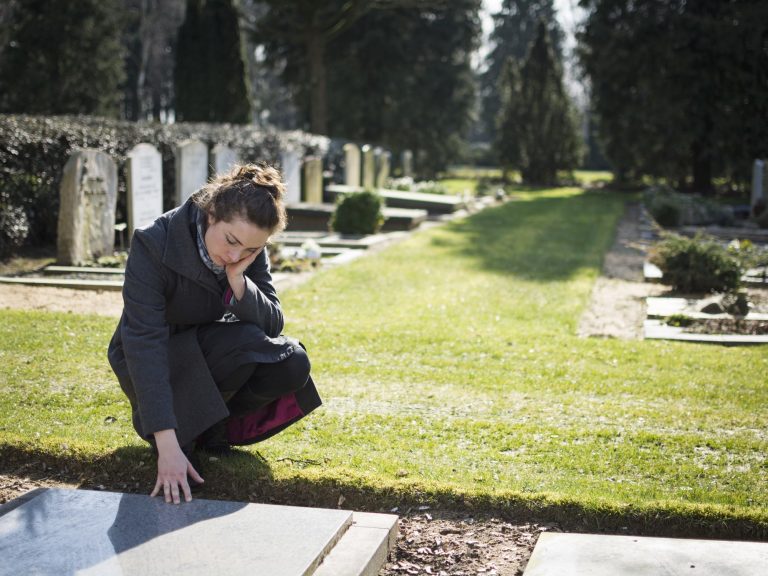
“We already let two trains pass“We have to get on,” a mother tells her son at the Avellaneda station. The baby is afraid but he still has the strength to get into an exploded car. Nobody runs. Someone tries to give him a seat but he still can’t get there.
It’s 4pm and the train left 18 minutes later than advertised on billboards, a constant of recent days. The train is so crowded that, while outside the autumn offers one of the coldest days of the year, inside two people ask for help because they feel the pressure drop of a hermetic and unventilated car. The heat becomes unbearable.
The situation seems ready to explode all the time. Between those who want to go up, those who want to go down, those who want to sit down and those who can’t stand the training moving at a man’s pace.
From Wednesday, May 6 all branches of the railway line Rock They have reduced hours due to work in the Barracas viaduct. The La Plata and Bosques branches via Temperley they happen every 40 minutes, and between Plaza Constitución and Berazategui, every 20 minutes. Furthermore, they leave late and they constantly reschedulewhile the workers work against the clock meters from the Hipólito Yrigoyen station.
Those that connect Constitución with Ezeiza, Alejandro Korn and Bosques pass every 20 minutes and between Constitución and Temperley, every 10. “The works include the dismantling of tracks, demolition of masonry and concreting of the new bridge, among other works”, detailed in the National Transportation Secretariat.
 Due to works on the Barracas viaduct, services of the Roca Train were suspended. Cars full at peak hours and extra buses. Photo: Martín Bonetto
Due to works on the Barracas viaduct, services of the Roca Train were suspended. Cars full at peak hours and extra buses. Photo: Martín BonettoMariano travels every day from Ezeiza, one of the capitals: “I take the train every morning at 6. As I leave Ezeiza I see the entire route and how it fills up. At the second station the train is already packed. And at each stop there is pushing and shoving from people who want to get in and other passengers who are inside and ask that no one else get on, because there is no room,” he explains about his daily experience. “It’s people threatening to fight every couple of stops. Add to that the fact that it takes you between half and an hour longer to make the same journey and in worse conditions. It really is starting the day already exhausted,” he acknowledges.
There are no security checks above the formations because you cannot walk. Neither street vendors nor street artists can work because moving is impossible. “We live day to day, if I don’t sell I can’t take money home, that’s how it is. But you can’t walk around and if you get into one, no one will buy from you because of the bad mood they get when we’re touring the wagon. These days I wait and leave later, but it’s complicated. Another alternative is to sell on the platforms but we’re all in the same situation,” complains a candy seller.
Germán, another passenger, explains: “Since it started The new timetable, without direct trains, traveling to Constitución from Korn is unbearable. Until now I always took a direct train that left at 6:57 and I felt comfortable because the journey had just begun. Now I take the 6:45 and the train arrives packed: people go to Glew and Guernica and go back to Korn to have a place.”
He also perceives the violence of the passengers who, angry, overflow at each station: “At each of the stops there are invitations and promises of fights between people who want to get on and others who want to get off. Pushing, insults and so on until the end of the tour. Although it always arrives packed, in recent days it escalated to levels that only occurred in very atypical situations (an outage or a technical problem). Now, it happens all the time, on the way there and back, even at non-peak times.
 Due to works on the Barracas viaduct, services of the Roca Train were suspended. Cars full at peak hours and extra buses. Photo: Martín Bonetto
Due to works on the Barracas viaduct, services of the Roca Train were suspended. Cars full at peak hours and extra buses. Photo: Martín BonettoAll day seems to be peak time for Roca passengers trying to get to and from work. Travel complications affect about 600 thousand people per day who use this transportation to connect the south of AMBA with the City of Buenos Aires.
Sebastián travels to Constitución on the train that connects with Quilmes: “The situation is getting worse every day. Sometimes you arrive in Constitución and you know that you are not going to be able to get on the next train or that you are going to travel poorly. The most worrying thing is to see a war starting. I had to see an argument because many use bicycles and another shouted that if the trains were so full they should not allow them, but the other “He responded that he could not pay for the rest of the transportation.”
As far as he could know Clarion, The works were necessary because the California Street bridge, in Barracas, needed maintenance and It was no longer safe for trains to pass through.
Of the four routes that the service has to operate, they now only use two, which is why they had to reduce the frequencies to advance with the tasks.
 Due to works on the Barracas viaduct, services of the Roca Train were suspended. They put additional buses, but they are more expensive and take much longer. Photo: Martín Bonetto
Due to works on the Barracas viaduct, services of the Roca Train were suspended. They put additional buses, but they are more expensive and take much longer. Photo: Martín BonettoFrom the state company Trenes Argentinos, in charge of the administration of the service, they informed Clarion that they are currently in the final stage of the “concreting process” and that once finished they will return to “fill the space and rearrange the track laying.” Then that “is aligned with heavy machinery and we would be in a position to restore service.” According to company workers, They work 24 hours a day, so they could meet the three-week deadline they had announced.
The truth is that the work was necessary for the safety of those who daily use one of the 600 formations that circulate on the roads of Barracas. However, problems with the service had begun in January, when the new administration suspended 150 services, mainly affecting those who did not travel during peak hours.
Complaints are part of deterioration and lack of investment in the entire railway operation. This week, after the crash of the San Martín train, which had occurred due to a lack of signals due to cable theft, the Government declared a Railway Emergency. In addition, trains are among the “privatisable” companies in the “Bases” law.
As far as he could know Clarionthe operator’s intention is for the works to be completed as soon as possible.
“Between the outages, cables being stolen, technical problems or schedule changes, traveling has been worse for months. On top of this, it’s the last straw. There are many of us who use trains, everything increases and on top of that we travel like this. It’s really frustrating: I arrive late to work every day and I have to leave early to be able to pick up my children from school. Why wasn’t this done on vacation? It’s great that they fix it, but it wasn’t the time,” he confided to Clarion Victoria, another passenger who uses the service between Lomas de Zamora and Constitución.
 Due to works on the Barracas viaduct, services of the Roca Train were suspended. They put additional buses, but they are more expensive and take much longer. Photo: Martín Bonetto
Due to works on the Barracas viaduct, services of the Roca Train were suspended. They put additional buses, but they are more expensive and take much longer. Photo: Martín BonettoThe company arranged buses to reinforce the lack of trains due to these works, but they are not an alternative that passengers choose. Clarion He traveled on one of these additional services and a journey that began at 4:30 p.m. ended at 6:00 p.m. in Lomas de Zamora. While the same section by train would take Between 20 minutes (with the schedules prior to May 6) and 35 (with the new schedules) it took almost three times as long.
“I took it to try it because today I have no problem being late, but if I have to go pick up my children from school it doesn’t work for me, and it’s more expensive,” said Ricardo, who travels to Temperley every day.
The buses stop at Temperley, Lomas de Zamora, Lanús and Avellaneda. They leave from the surrounding area and stop only at the stations. In general there are several detainees and in most cases They come out empty or with all the people seated. It costs $270, while the train ticket costs $200.
Liliana is 50 years old and works in the City of Buenos Aires: “I arrive late every day, I lost the presenteeism of the entire month. And I’m leaving earlier but it’s impossible. I let two or three trains pass every morning. Now I tried the bus because I’m tired, I didn’t have the strength to get on, I was also crushed to go back,” she told Clarion from one of the reinforcement groups.
 The work on the Barracas viaduct, built in 1920, could not wait any longer because it could affect safety. Photo: Martín Bonetto
The work on the Barracas viaduct, built in 1920, could not wait any longer because it could affect safety. Photo: Martín BonettoClaudia works in Avellaneda and went from taking 45 minutes from José Mármol to double the time: “I’m arriving late. I can’t leave much earlier because I take my son to school. I already arranged with the teacher to receive him a few minutes earlier but still… I had to change the shift.”
The works
From Trenes Argentinos they reported that “the renovation work on “arch 21 of the Barracas viaduct” is underway, located on California Street.
 From Trenes Argentinos they say that they work 24 hours a day to restore the service. However, users say that a previous reduction in frequencies was already noticeable.
From Trenes Argentinos they say that they work 24 hours a day to restore the service. However, users say that a previous reduction in frequencies was already noticeable. The tasks aim to recover the bridge structure, built in the 1920s, Due to the passage of time and the constant circulation of trains, it needs urgent repair. As far as he could know Clarionthey found cracks in the structure and that is why they would have closed the Yrigoyen station in December 2023.
Since the fleet of trains on the line was renewed, two more platforms were added for the circulation of the formations. This reduction is what is affected by the works today.
S.C.
For more latest and up to dated news, Visit Baddiehub Now.






